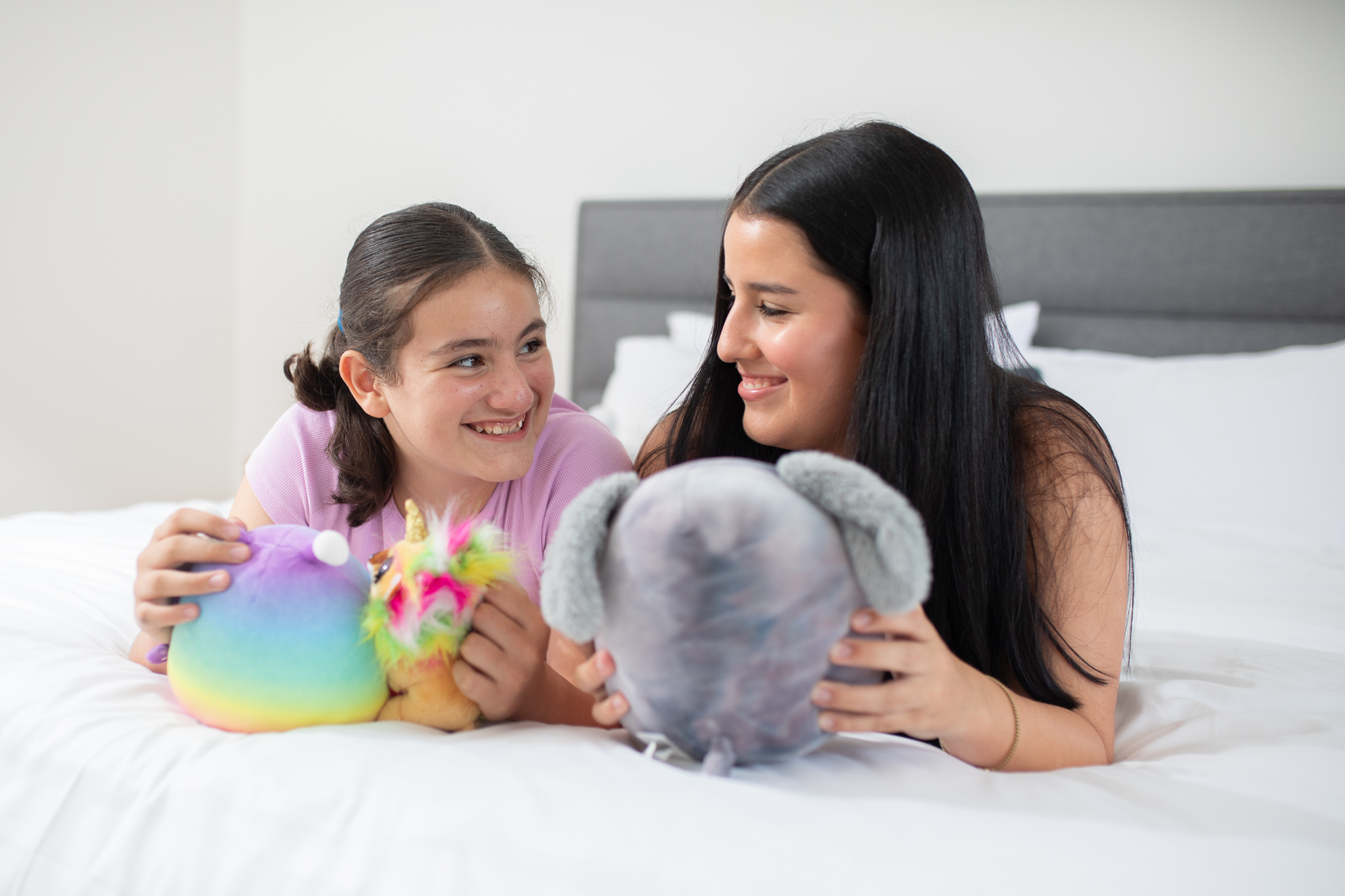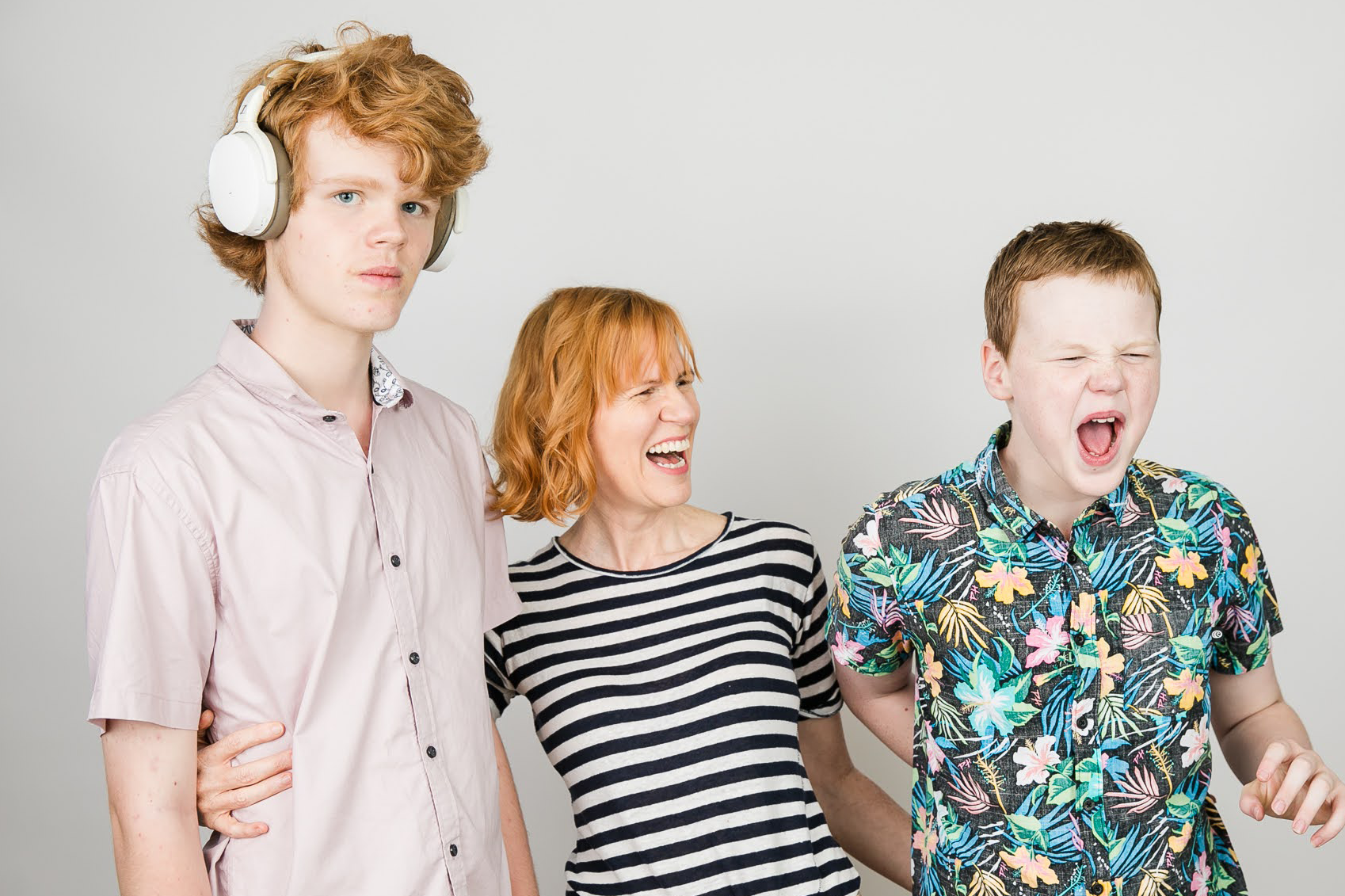Friendships for autistic adults

We all need and want positive and meaningful friendships, regardless of our age, interests, abilities, or background.
This is also true for autistic people, who benefit greatly from having supportive friends to celebrate wins and navigate tough times. But as autistic people move into adulthood, where there is far less social support, maintaining friendships or meeting new people can be difficult.
In this post, we’ll discuss some of the skills and strategies that can help autistic adults to form and maintain friendships. We’ll share some ideas for meeting and getting to know people, and the support services that can empower adults with autism to build their confidence and self-advocacy skills. We’ll also share how neurotypical people can better understand and support their autistic friends to maintain healthy relationships.
- Making and keeping friends
- Meeting new people
- Support services for autistic adults
- Information for neurotypical people
Making and keeping friends
Forming friendships can feel complicated and overwhelming for both autistic and neurotypical people. However, there can be additional factors that make social interactions overwhelming for people with autism, including:
Non-verbal communication
An autistic person might find using and reading non-verbal social cues, such as body language, gestures and eye contact, difficult. This can create misunderstandings in social interactions, sometimes leading to communication barriers that impact relationships or prevent them from forming. For example, if a person with autism struggles to maintain eye contact with someone they are talking to, the other person might interpret this as the autistic person being uninterested in what they are saying, where this might not be the case.
Emotional regulation
Some people with autism find emotional regulation challenging, which can complicate social interactions. Anxiety can be especially common among autistic people, leading to overwhelm in social situations or complete social withdrawal (avoiding social events). Some autistic people can find interactions with their friends more stressful than social interactions with strangers, as they feel increased pressure to meet social norms and expectations.
Change and compromise
A last-minute or unexpected change to a planned social event can be very stressful for an autistic person, making it difficult to participate fully and calmly. Some people with autism may have to miss a social event altogether if the change is too overwhelming. Compromises that might seem insignificant to neurotypical people can also be much more challenging for an autistic person.
Sensory sensitivities
Autistic people are often hypersensitive (over-sensitive) or hyposensitive (under-sensitive) to sensory information. Hypersensitive people might be triggered by the noise of a social event or even the perfumes that others wear. On the other hand, people who are hyposensitive might engage in sensory-seeking behaviour, such as speaking very loudly or touching certain textures repeatedly, such as the material of a person’s clothes. These sensitivities can make it difficult for people with autism to engage with others.
Masking/camouflaging
Many autistic people feel pressured to mask or camouflage in social situations, meaning they adopt or mimic ‘neurotypical’ mannerisms, interests or behaviours to blend in more easily. Although this can make social situations less challenging in the short term, forming a deeper and more meaningful connection with others becomes near impossible when someone conceals their true nature or interests.
Poor confidence and self-esteem
Some people with autism can be overly critical of their behaviour in social situations, and this lack of confidence or poor self-esteem makes forming and maintaining relationships difficult. Some autistic people can be reluctant to make friends due to poor experiences they have had in the past. Without support to process these experiences and develop strategies to cope and address them, autistic people don’t feel empowered to improve their social interactions. There is a range of effective strategies that can help autistic adults make and keep friends:
Prioritise your needs
Although meeting new people can be exciting, only some people you meet will be friendship material. Take a moment to observe the interactions and behaviour of a new group of people and identify whether you feel comfortable around them. Although it’s normal to feel awkward in new social groups, feeling belittled, excluded, harassed or manipulated isn’t. Check-in with yourself to make sure you feel comfortable and respected, and if you do not, do not hesitate to speak up or remove yourself from the situation.
There might be situations where you like the new people you meet, but other factors, such as sensory sensitivities or your mood, can make it difficult to socialise. It is important not to push yourself to socialise if you are feeling very uncomfortable or overwhelmed, as experiencing prolonged stress can impact your health and even lead to burnout. Remember, true friends will appreciate that you need to put yourself first.
Reflect on communication
Communicating with others, particularly people you don’t know very well can feel daunting. Rather than preparing a script that you need to follow during the conversation, consider some questions you could use to start speaking with someone. Asking people about their hobbies and interests is a great example, as it allows you to find out more about the other person and discover if you share the same passions.
Avoid mentioning topics such as finances (e.g., how much money a person earns), age or aspects of a person’s physical appearance, as these can be sensitive topics that many people are uncomfortable discussing.
Considering social cues
Social cues and signals that neurotypical people use subconsciously can be completely foreign or overwhelming for people on the autism spectrum. For example, many autistic people struggle with eye contact, a form of non-verbal communication neurotypical people observe to determine whether another person is engaged in what they are saying.
If eye contact is stressful for you or makes it difficult to focus on what someone is saying, don’t force yourself to do it. It’s better to follow what the person is saying without making eye contact than struggling to understand them by forcing eye contact, which can lead to miscommunication or misunderstandings. Some people with autism find it helpful to focus on another area of a person’s face, such as their chin, forehead or a point next to their head. However, if this does not help you, explain to the person you are speaking to that you do not engage in eye contact but are still interested in hearing what they say.
Managing sensory sensitivities and emotional regulation
Taking breaks at social events, where you relocate to a quieter space and spend some time alone, can help alleviate anxiety and help you with emotional regulation. This can also help prevent sensory overload if an environment is triggering your sensory sensitivities. Having items like noise-cancelling headphones or objects or toys to fidget with can help you regulate when there isn’t a place or opportunity to take a break.
If anxiety, anger or low mood have been impacting your day-to-day life or preventing you from doing things you want to do for two weeks or more, it’s time to seek some external support. Visit Autism: What Next? to discover the support options and self-care strategies autistic people should consider.
Meeting new people
There are a variety of ways autistic individuals can meet other people and work towards forming friendships. Here are some ideas to get you started:
Autism-specific groups
Connecting with other autistic people can be very beneficial for seeking advice, sharing common experiences and finding support from people who understand what you are going through. Joining a community of other autistic adults can be very empowering. You can check out this list of autism-specific support groups to get started.
Local support groups
If you or an autistic person you know enjoys face-to-face interaction, you might like to try a community-based group. This could be a cultural group, church group, volunteering group or a group for people with disability to connect in their local community.
Before deciding to attend a group, do some research to determine whether its structure and culture reflect your needs and values. This research might involve contacting members or organisers of the group, particularly if you have questions about accommodations to support your individual needs.
Some people with autism find it helpful to bring someone they already know and trust when they meet new people. This could be a family member, an existing friend or a support worker, as long as they understand and respect your needs and preferences. Over time, an autistic person might not need to attend a group with anyone else, but it can often be helpful to have some familiarity in an unfamiliar situation.
Interest-based groups
Many autistic people have strong passions, and connecting with others who share those interests, whether they are autistic or not, can be hugely validating. Interest-based groups enable autistic individuals to pursue their passions while connecting with like-minded people. Social interactions with people with common interests can be much less overwhelming, as there is already so much to share and discuss.
No matter how niche the interest, there is bound to be a group that reflects it. These groups can exist in-person or online or offer a combination of both. As mentioned above, you could attend this group with someone you trust if that would make you more comfortable.
Online groups
Many autistic people prefer to interact with other people online rather than in person. Whether this is through social media, gaming or other means, online interactions can feel less overwhelming than socialising face-to-face for a variety of reasons. Reading social cues or interpreting non-verbal communication becomes a non-issue, and users can communicate and respond to others in a timeframe and manner that suits them. Users also have greater control over how they appear and are perceived by others and can use avatars or characters to explore their identity in a more controlled environment.
Meeting and interacting with people with similar interests, opinions and life experiences can also be far easier online than in real life. For autistic people with very niche interests, the online world might be the only opportunity to find meaningful connections with others who share their passions.
Although the online world can create opportunities for meaningful friendships, this requires strong digital literacy skills to prioritise safety and wellbeing. Not everyone online has good intentions or is who they claim to be, and bullying, harassment, and manipulation can still occur online; in fact, they are often harder to address. Visit our page on online safety and gaming for guidance on staying safe and maintaining a balance between online and offline activities.
Disclosing that you are autistic when meeting new people is an entirely personal choice. You may tell people straightaway, wait until you know the person better, or not disclose at all. Whatever you decide to do is completely valid and should be respected by those around you; being pressured to disclose or not disclose autism is not okay. If you are looking for guidance around discussing autism with other people, you can find it here.
Many autistic people use external support services to work towards developing skills and resilience to navigate social situations and relationships more confidently. For example, a psychologist can help you identify and address patterns of thinking, feeling, or behaviour that make connecting with others challenging. You can learn more about support services that benefit autistic adults and how to find a reputable support service by visiting ‘Autism: What Next?’
Information for neurotypical people
It is certainly possible for autistic and neurotypical people to have positive and long-lasting friendships. Having an awareness of autism, and the needs and preferences of an autistic person can help these friendships become stronger and more meaningful, even if they look or operate differently to friendships between neurotypical people.
Understanding an autistic person’s needs, interests, values, and preferences is an important first step in forming or strengthening a friendship. For example, if an autistic person is hypersensitive to sound, socialising in a bar, club, or busy cafe is not ideal. By asking how a person with autism prefers to socialise and being receptive to their response, you can prevent misunderstandings and barriers to connection. Remember, autistic people prefer direct communication, so if you are unsure, ask questions and avoid guesswork.
It is also important to remember that an autistic person is unlikely to socialise in the same way as a neurotypical person. A person with autism might not always maintain eye contact or might be more direct in how they communicate. However, this does not mean that they do not value your friendship or enjoy your company. If you have concerns about your friendship, raise them directly and promptly, allowing for an open and honest conversation where both parties can voice their concerns and develop a clear solution.
If you are a neurotypical person looking to learn more about autism, you can explore our website to find free, evidence-based information. If you are looking for information to support someone who has recently received their autism diagnosis, you can visit ‘Autism: What Next?’
Your next steps
Friendships are important for everyone, and although they require time, effort and practice, they are incredibly worthwhile and important. For autistic adults in particular, friendships can provide an invaluable support network, improve confidence and self-esteem and provide the opportunity to discuss shared interests and enjoy shared experiences.
For more information related to positive relationships for autistic adults, visit the links below:






